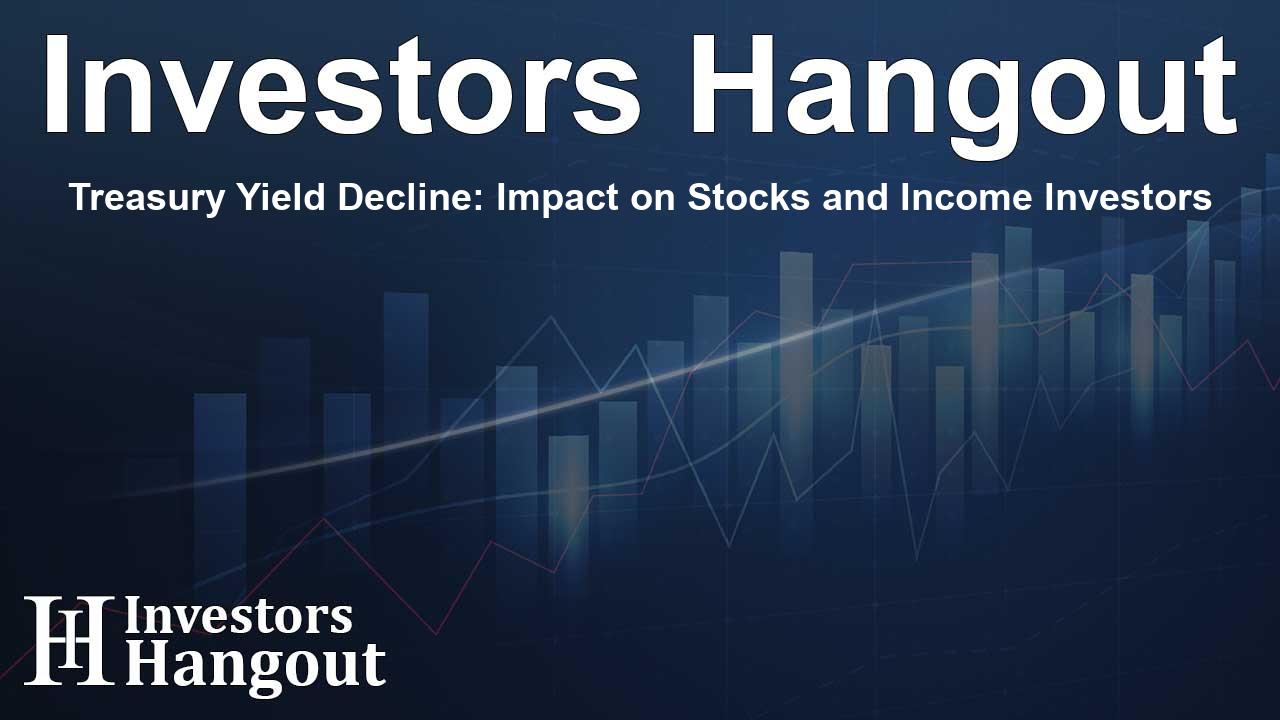Treasury Yield Decline: Impact on Stocks and Income Investors

Understanding the Recent Decline in Treasury Yields
The bond market has shown itself to be a reliable early indicator of economic conditions, often outperforming stock market predictions. Recently, we have witnessed a significant drop in the U.S. 10-year Treasury yield, plummeting from 4.7% to 3.7%. This substantial change brings several implications that are worth exploring.
The Two Perspectives on Yield Decline
As we interpret this yield decrease, there are two key questions to consider: Has inflation genuinely begun to decrease, or is the economy gearing up for a notable slowdown? Understanding these fundamentals will provide clarity regarding the market's direction.
The Impact on Economic Growth
Historical trends denote that a significant fall in long-term interest rates typically foreshadows a deceleration in economic growth, sometimes even hinting at an impending recession. A decline below the crucial threshold of 3.8% in the 10-year note often signifies that the economy may be contracting more than current projections suggest.
Implications for Stock Market Performance
The implications of this yield drop are concerning for stock investors. Lower economic growth generally results in diminished corporate earnings, leading to less optimistic forecasts for equities. Consequently, the current reduction in yields does not bode well for stocks in the near term.
Positive News for Fixed-Income Investors
On the other hand, falling yields present an advantageous situation for fixed-income investors. The recent downward movement in yields represents a substantial positive shift for bondholders. As yields decline, bond prices typically rise, creating a favorable environment for income investors looking to secure returns.
Technical Perspectives and Future Projections
While the current trends indicate a potential bounce in yields after reaching oversold levels, it is essential to monitor these developments closely. Unless a powerful and consistent upward movement occurs in yields, the overall trajectory appears bullish for fixed-income investments moving forward.
Market Behavior and Long-Term Trends
Markets do not operate in a predictable manner; however, the trends suggest that bond yields might be on the verge of further declines. This future possibility would likely mean rising bond prices, enhancing the investment landscape for those prioritizing fixed income over equities.
Frequently Asked Questions
What do declining Treasury yields indicate about the economy?
Declining Treasury yields often indicate a slowdown in economic growth and may signal a potential recession.
How does a drop in yields affect stock prices?
A decrease in yields can negatively impact stock prices as it suggests lower future corporate earnings.
Why are lower yields considered good for fixed-income investors?
Lower yields typically lead to higher bond prices, providing better returns for fixed-income investors.
What might cause the Treasury yield to bounce back?
A strong and sustained economic performance or inflationary pressures may contribute to a rise in Treasury yields.
Is the current bond market trend likely to continue?
Current trends suggest bond yields may continue to decline, which can bolster bond prices in the near future.
About Investors Hangout
Investors Hangout is a leading online stock forum for financial discussion and learning, offering a wide range of free tools and resources. It draws in traders of all levels, who exchange market knowledge, investigate trading tactics, and keep an eye on industry developments in real time. Featuring financial articles, stock message boards, quotes, charts, company profiles, and live news updates. Through cooperative learning and a wealth of informational resources, it helps users from novices creating their first portfolios to experts honing their techniques. Join Investors Hangout today: https://investorshangout.com/
Disclaimer: The content of this article is solely for general informational purposes only; it does not represent legal, financial, or investment advice. Investors Hangout does not offer financial advice; the author is not a licensed financial advisor. Consult a qualified advisor before making any financial or investment decisions based on this article. The author's interpretation of publicly available data shapes the opinions presented here; as a result, they should not be taken as advice to purchase, sell, or hold any securities mentioned or any other investments. The author does not guarantee the accuracy, completeness, or timeliness of any material, providing it "as is." Information and market conditions may change; past performance is not indicative of future outcomes. If any of the material offered here is inaccurate, please contact us for corrections.